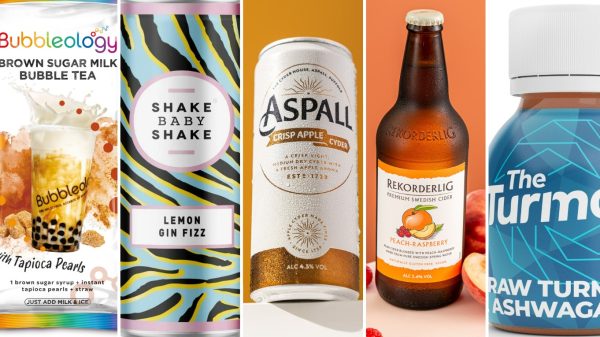Shop price inflation has eased for the fifth consecutive month to its lowest rate in 14 months, as supermarkets cut the price of homegrown fruit.
According to the British Retail Consortium (BRC), price rises dropped to 5.2% in October, down from 6.2% in September.
The latest easing in shop inflation was driven by food price growth falling from 9.9% to 8.8%, fuelled by reductions in domestic fruit such as strawberries and grapes.
For example, Aldi launched its biggest ever round of price cuts on its fruit and vegetable essentials range last month.
The 8.8% growth in food prices is below the three month average rate of 10.1% and is the sixth consecutive deceleration in the food category, meaning inflation is now at its lowest since July 2022.
Fresh food inflation fell from 9.6% to 8.3%, hitting its lowest point since July 2022, while ambient food inflation – items stored at room temperature – slid from 10.4% to 9.5%, its lowest rate since October 2022.
It comes as supermarkets have launched significant price-cutting campaigns.
Subscribe to Grocery Gazette for free
Sign up here to get the latest grocery and food news each morning
Earlier this month, Asda revealed that it is cutting the price of 232 branded and own-label products in its latest efforts to support shoppers amid the cost-of-living crisis.
BRC chief executive Helen Dickinson said: “Retailers have been battling to keep prices down for their customers in the face of rising transport costs, high interest rates and other input costs.
“To keep inflation heading in the right direction, it is vital that the Government does not burden businesses with unnecessary new costs.
“Without immediate action from the Chancellor, retailers have an additional £470m per year on their business rates bill, jeopardising the progress made. Ultimately, it’s consumers who would pay the price for the rising rates bill.”
NielsenIQ head of retailer and business insight Mike Watkins commented: “Inflation has helped the topline sales growth of many food retailers this year but in reality, shoppers have been paying more and buying less.
“And the rest of the retail trade has seen less benefit due to the continued squeeze on discretionary spend.
“This time last year pressure was growing on household incomes as inflation was accelerating in fuel, energy, and food so as inflation continues to decelerate, we now need an uptick in sentiment to help retail sales over the next 8 weeks”.











1 Comment. Leave new
Interesting to see year on year inflation but the 2 year inflation is still very high consistently over 18%. Which means volume growth is very low or indeed negative. Is it Brexit driven or other global factors?